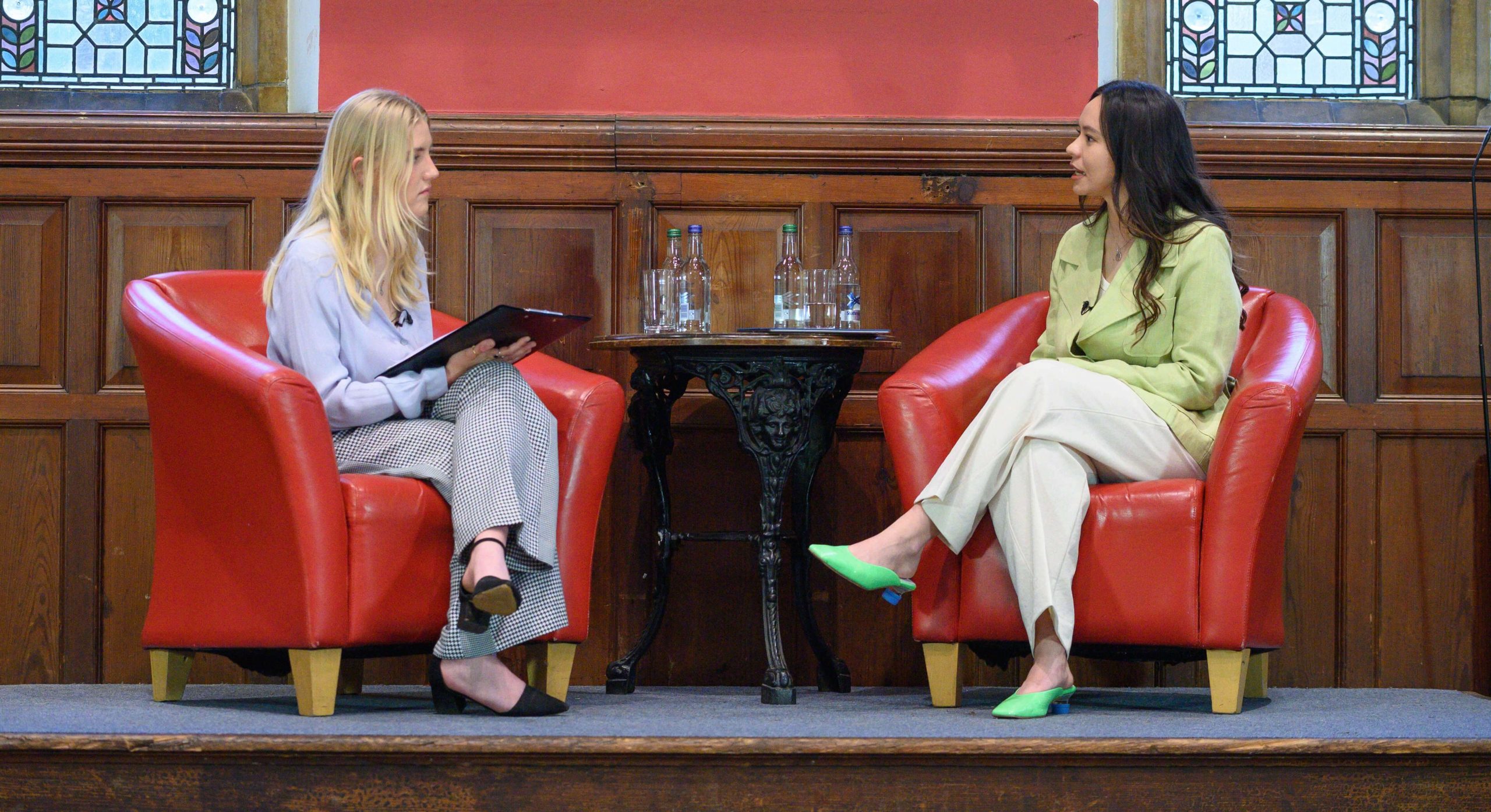We choose who we trust. Sometimes, we just pick wrong. We kiss the wrong people, hold the wrong hands. When you realise you aren’t being respected and your feelings are being overlooked or (worse) stomped on, an ending quickly becomes inevitable. But what do you do when you feel it? That sinking feeling in your gut — the instant something precarious falls apart?
In an age of emphasis-on-the-casual dating, situationships and shifting circumstances, the credits can roll with barely a second’s notice. Almost-Maybes become Definitely-Nots in the time it takes for a head to turn or a mind to change. Things can end before they’ve technically even begun. Often, this amounts to little more than a polite parting of ways, but where feelings are involved, it’s inevitably more complicated. So, how do you say ‘goodbye’ with your head held high?
Endings like these often boil down to a power struggle. Do you quit biting your tongue and say everything you want to, consequences be damned? Or, do you make peace with your silence for the sake of an easy life? Do you message first (a claim for the moral high ground) or do you refrain (the above-it-all approach)? Or, is it weak to declare a truce, and petty to hold out for the sake of it?
Through a healthy amount of trial, error and observation, I can confidently say I’ve arrived at a fairly obvious (and yet, ground-breaking) conclusion: it’s completely up to you. But as long as you’re worrying about the other half of the equation, you’ve got the wrong idea.
Take the whole ‘post-break-up glow-up’ culture. It might be superficially satisfying, but it’s hardly a healthy mindset if your sole focus is on how it’ll make them, rather than you, feel. It’s fun to feel smug about looking drop-dead gorgeous when you go to say goodbye, but it can quickly backfire into you feeling daft about the effort you put in in the hope they’d notice. Similarly, wearing your hair up because they like it down, or eyeliner because they prefer you without, puts all the power in their hands — and for what? Just wear what you want. That might mean reclaiming a look you abandoned once you realised they didn’t like it, or wearing that outfit you love almost as much as they do, but wear what you want in spite of their opinion, rather than to spite them.
My Timberlands are my superlative combat boots. When I’m going into battle, it’s nice to do it while looking them dead in the eyes (or scrutinising their hairline) and with a swish in my step. That doesn’t mean I don’t still sometimes get a twinge of satisfaction when I remember my ex’s preference for ‘natural’ makeup as I’m sweeping on a darker lipstick he hated, but now I’m learning to make sure I pick my wardrobe with me in mind. Every. Damn. Time. It’s just an added bonus that the confidence that comes with wearing what you love is the best kind of ‘revenge sexy’ there is.
But my least favourite aspect of an ending, even worse than the wardrobe-worrying, is the race to begin again. Why does it seem like an embarrassing admittal of defeat to say you’re happily single? I love the quiet thrill of knowing I haven’t met that person yet, but it could be today, or tomorrow, and in the meantime I’ve got friends who feel like family and that’s more than enough to make me happy. But faced with an ending, I often find myself immediately wishing for a new beginning. Wanting a fitter, funnier someone to flaunt shamelessly in the face of the fool who passed at the chance to be with a catch like me.
It’s a bit gross though. The fact that I find myself looking for a weapon to wield after an ending feels distinctly un-feminist. This intimi-dating generally seems to rely on finding the ‘perfect’ person, upholding patriarchal preferences and placing your self-worth in someone else’s approval. If you’re a straight woman, this relies on the assumption that your ex is more likely to either respect or feel undermined by you if you find a Better Man than if you’re successful and happy without someone new by your side. This, I have to raise an unimpressed eyebrow at. Your dates deserve to be treated like human beings, not hand grenades. And why spend the time and energy dating someone new if you aren’t doing it for you?
Whenever my love life takes a turn for the disappointing, I realise I’ve never felt the same happiness holding a hand or giving into a kiss than when I catch myself mid-laugh with my favourite people, finishing a knitting project or on a long walk with a really good coffee. We should cut the nonsense about how we’re half of a whole until we find our Other. Because I definitely don’t feel that way. I never really feel like myself through another person’s eyes; I’d never choose to describe myself as ‘sweet’, I’m a whole lot less collected than I can convince people I am, and I don’t want to factor a man into my makeup routine. I’m genuinely content in my own company, and I’m not going to give that up just to prove a point.
What would happen if we all just focused on ourselves after an ending? Reconcile if you’re sick of fighting, be pissed if you aren’t ready to forgive, decide yourself that ‘enough is enough’ if it’s too much grief to keep ‘talking about it’ every five minutes. It won’t always be an ending that you want, but that doesn’t mean you can’t make it mean something.
Make no apologies about how you choose to heal and, perhaps most importantly, change your mind and your tactics anytime you want. Let them think what they like — as long as you know your own mind, that’s all that matters.
You don’t have to explain yourself or worry about being constantly consistent, and you don’t have to be seen to have the upper hand. As long as your main concern is yourself, you’ll have it.
Because sometimes, there’s nothing left to do but write your own ending.




